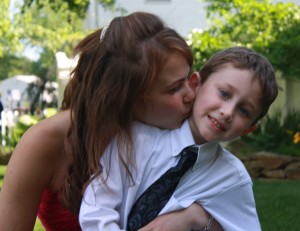There has been much debate on whether or not your child should be your “friend”. Just what does being a “friend” to your child mean? It boils down to the responsibilities of a parent as compared to those of a friend. Consider the following factors.
The relationship of a parent to a child is fixed. Whether the child was born of the parent, or adopted, the child is part of a family unit and all that it entails. The physical and emotional relationship between parent and child goes far beyond the relationship with others who do not belong to the family.
The relationship of a friend to a friend is variable. It all depends on the friends involved, and the nature of their friendship. For some it may be deep, like Casey Rose and The Joybug. For others it may be superficial. A friendship may start on a very casual basis, with little or no mutual obligations. Gradually, it may deepen as the friends get to know each other better. Or, it may peter out.
The responsibilities of a parent towards the child are clear and well-defined. There is a certain minimum of obligations which a parent must fulfill towards a child under its  care. Among these are the proper care and nurture of a child, and to love a child without judgement. This includes the feeding, clothing, sheltering and protection of the child. It encompasses the education of the child, and the development of the right attitudes and sense of values.
care. Among these are the proper care and nurture of a child, and to love a child without judgement. This includes the feeding, clothing, sheltering and protection of the child. It encompasses the education of the child, and the development of the right attitudes and sense of values.
The responsibilities of a friend can be flexible. This, again, depends upon the nature of the friendship. There are certain responsibilities of a parent that a friend is not obliged, or expected, to bear. If a friend chooses to take on these responsibilities, that is purely optional.
The responsibilities of a parent and a friend may overlap or even conflict. This is especially true in the case of discipline. Every parent is expected to discipline the child properly to ensure its proper development. On the other hand no friend is expected to discipline the other friend.
In short, while some characteristics of friendship may be helpful in the relationship of a child with its parent, being simply a “friend” to your child will be falling short of your obligations as a parent. Hop on board The Joy Kids Express for more joyful tips.